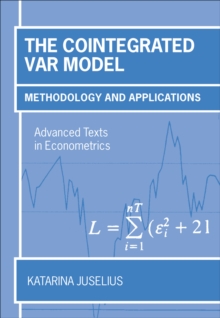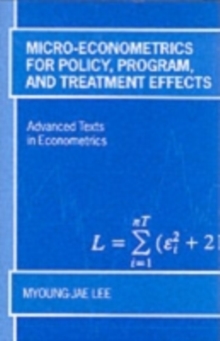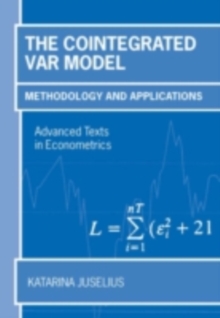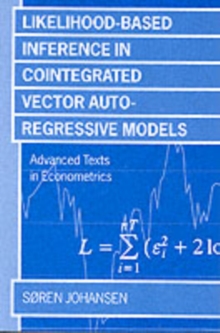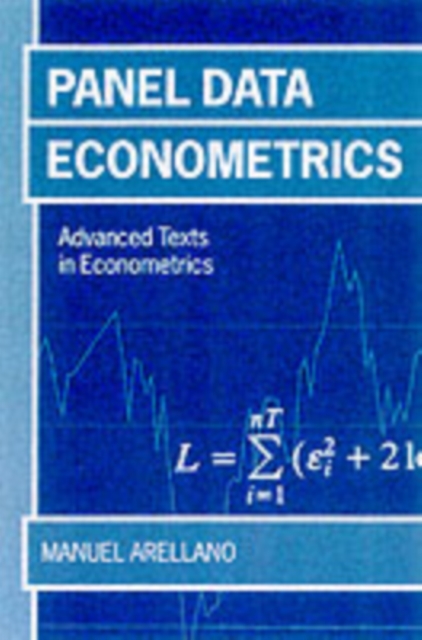
Description
This book, by one of the world's leading experts on dynamic panel data, presents a modern review of some of the main topics in panel data econometrics.
The author concentrates on linear models, and emphasizes the roles of heterogeneity and dynamics in panel data modelling.
The book combines methods and applications, so will appeal to both the academic and practitioner markets. The book is divided in four parts. Part I concerns static models, and deals with the problem of unobserved heterogeneity and how the availability of panel data helps to solve it, error component models, and error in variables in panel data. Part II looks at time series models with error components.
Its chapters deal with the problem of distinguishing between unobserved heterogeneity and individual dynamics in short panels, modelling strategies of time effects, moving average models, inference from covariance structures, the specification and estimation of autoregressive models with heterogeneous intercepts, and the impact of assumptions about initial conditions and heteroskedacity on estimation. Part III examines dynamics and predeterminedness. Its two chapters consider alternative approaches to estimation from small and large T perspectives, looking at models with both strictly exogenous and lagged dependent variables allowing for autocorrelation of unknown form, models in which the errors are mean independent of current and lagged values of certain conditioning variables but not with their future values. Together Parts II and III provide a synthesis, and unified perspective, of a vast literature that has had a significant impact on recent econometric practice.
Part IV reviews the main results in the theory of generalized method of moments estimation and optimal instrumental variables.
Information
-
Download - Immediately Available
- Format:PDF
- Publisher:OUP Oxford
- Publication Date:26/06/2003
- Category:
- ISBN:9780191529672
Information
-
Download - Immediately Available
- Format:PDF
- Publisher:OUP Oxford
- Publication Date:26/06/2003
- Category:
- ISBN:9780191529672
